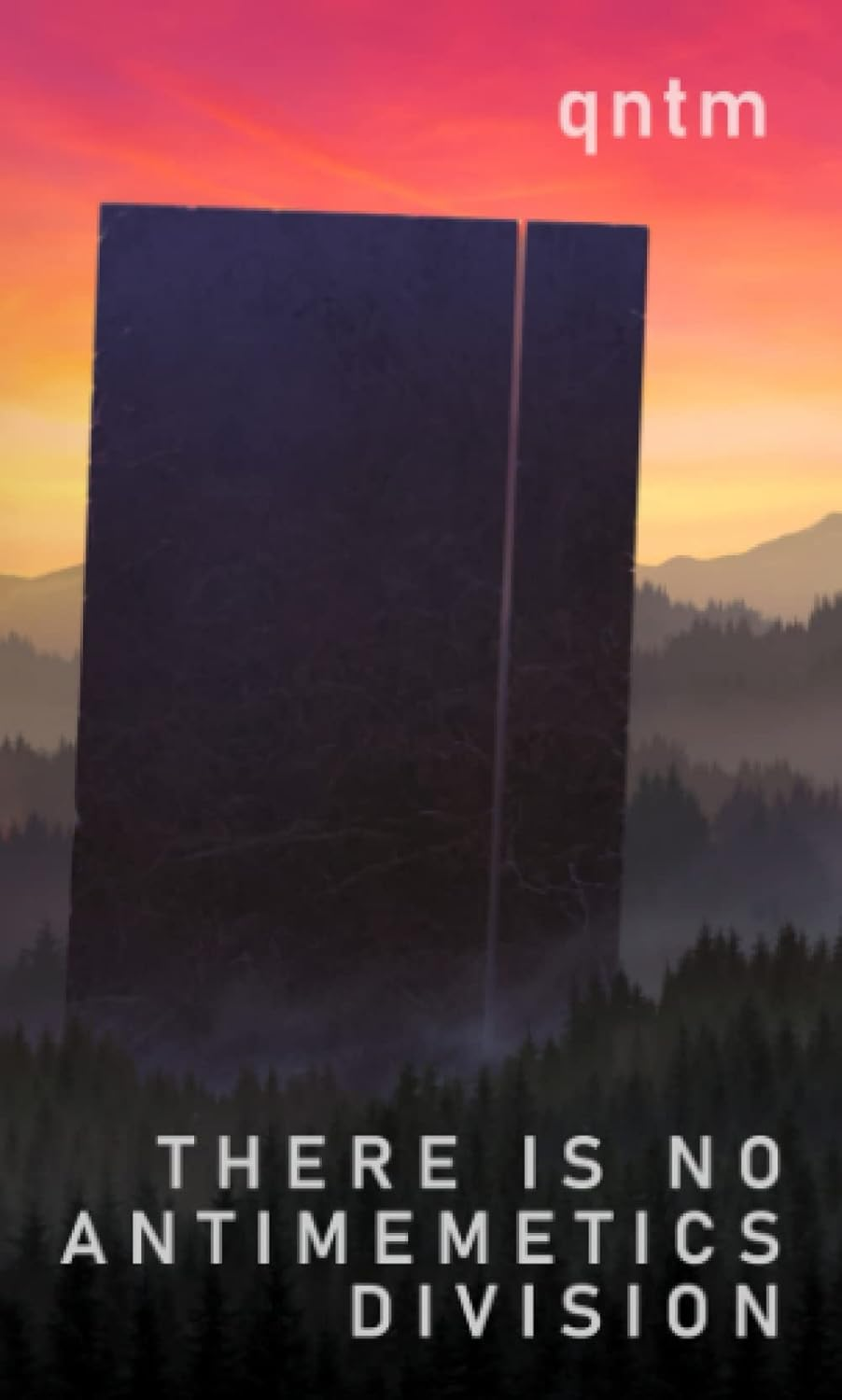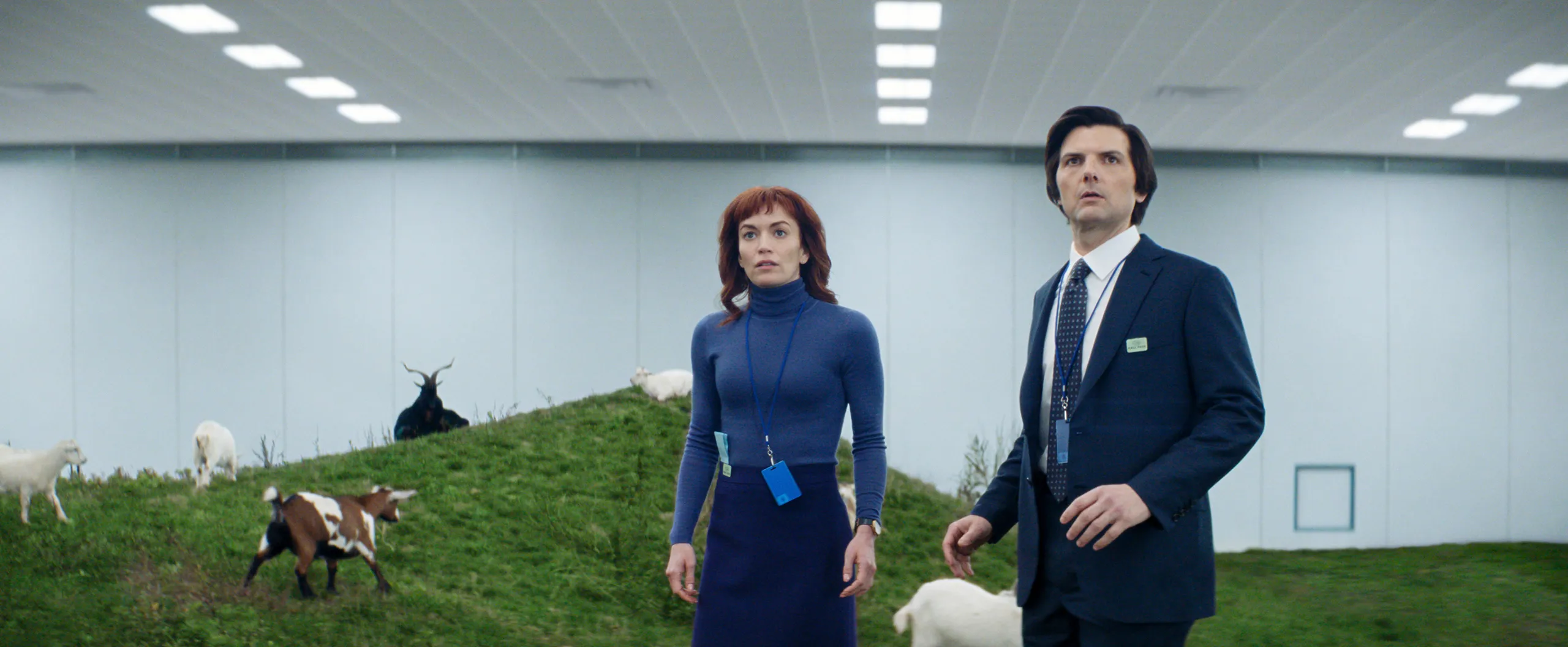"There is an invisible monster which follows me around and likes to eat my memories," Marion explains, patiently. "SCP-4987. Don't look it up, it's not there. I've learned to manage with it. It's like a demanding pet. I produce tasty memories on purpose so it doesn't eat something important, like my passwords or how to make coffee."
— qntm, There is No Antimemetics Division, Ch. 7, para. 72
There is No Antimemetics Division was written by Sam Hughes, better known as "qntm" online. The book was originally published online as contributions to the SCP Foundation Wiki. The SCP wiki is an open community of writers that have been building a shared fictional universe around a secret organization that protects humanity from paranormal anomalies. It's like an open source Men In Black.
Hughes’ contributions to the wiki, which eventually became this standalone novel, takes aim at the most insidious anomaly of all — the things you can’t remember.
 before reading, please forget that neuralyzers ever existed
before reading, please forget that neuralyzers ever existed
Flat-line Writing
The writing is not the book's strongest asset. The characters feel flat and inconsequential—merely there so someone can observe the strange phenomenon taking place. The dialogue often veers into awkward, almost parodic exchanges. At times it reads less like a novel and more like a script for a dramatized Wikipedia entry.
Antimemetics sits at the intersection of horror and science fiction—it's definitely trying to be frightening. But effective horror needs rhythm and restraint; it needs quiet before the scream. Only once the reader is immersed can they be truly impacted by the weight of a scary event.
In Antimemetics, everything is cranked to eleven from the start. Each chapter feels like a climax, escalating from "something's off" to a full-blown catastrophe within a few pages. The result isn’t suspense—it’s exhaustion. When every moment is chaos, none of it feels real.
That said, qntm deserves credit for some creative writing and presentation. For example, the use of redacted passages and corrupted text to evoke the sense of memory loss associated with these antimemetic phenomenon:
██ 2010 ██ ███ discovered ████ the antimemetic camouflage ██████, also characterised as "decay" or "corrosion", was spreading through paper records of ███-████. As of ████, more ████ 60% of █████ documents are ██████████, even with █ strong mnestic dose. The effect is even ████████ ████ ████ SCP entry itself, despite ███ ███ shielding and redundancy in ████ system.
— qntm, Ch. 13, para. 16
These stylistic choices, along with shifting narrative formats—SCP Foundation logs, secret reports, and third-person storytelling—give the book a textured, documentary feel. It’s inventive, if not always cohesive.
Antimemetic Terrors
The story's best trait, by far, is its core concept of antimemes. Antimemes are ideas or entities that resist perception and memory; one of the more unsettling concepts in recent sci-fi. It's psychologically spooky...having monsters that can roam the Earth causing havoc and terror, but no one remembers they exist.

The whole premise of the book is anchored around memory and how it's both weaponized, and defended against, by the members of the Foundation. Hughes builds a world where entire teams of scientists and engineers wage psychological warfare against forgetfulness itself. They use a variety of techniques to combat these entities: memory-blocking drugs ("amnestics"), memory-preserving drugs ("mnestics"), and cognitive isolation rooms, to name a few.
The way they partitioned one's memory reminded me of Severance, and their efforts to hide these anomalies using memory erasing technology recalls the Men in Black movies. But the Antimemetics division goes further—asserting that memory, more than truth or courage, is the real weapon against oblivion.
 SCP-9431: the weird goat room
SCP-9431: the weird goat room
Recommendation
After finishing the book, I found out via qntm's blog that he's signed a publishing deal to re-release Antimemetics as a "fully overhauled, thoroughly rewritten version", slated for release by the end of 2025. Frankly, I'd wait for this new version to be available. The overall concept is fascinating, but the lacklustre prose and choppy storytelling often gets in the way. A cleaner, more polished rewrite could turn this into a genuinely poignant and memorable story—assuming, of course, you can remember it.
